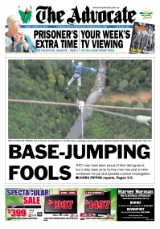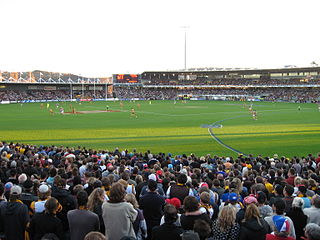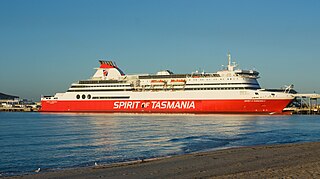Twenty-first-century ventures
The claims of these ventures in no way should be considered firsts, as in most cases earlier walks of substantially more difficult circumstances were never recorded in this manner. Also most walks and walkers are on made roads.
| Name | Age | Nationality | Start date | Finish date | Duration | Distance | Starting location | Finishing location | Route |
|---|---|---|---|---|---|---|---|---|---|
| Christopher Neil "Earth-Walk Man" Linton | 51 | 1 April 2015 | 20 April 2015 | 20 days | 552.5 km | Port Arthur | Devonport | Coastal | |
| Kelvyn Charles Yong-Hyeon Linton | 14 | 1 April 2015 | 20 April 2015 | 20 days | 552.5 km | Port Arthur | Devonport | Coastal | |
| Hardy James "Jimmy" Harrington | 20 | 3 May 2014 | 9 May 2015 | 06 days | 255 km | Devonport | Hobart | Traversal | |
| Scott Loxley | 48 | 3 Nov 2013 | 22 Nov 2013 | 20 days | 255 km | Devonport | Hobart | Traversal | |
| John Olsen | ?? | Data Needed | 2014 | ?? | 255 km | Devonport | Hobart | Traversal | |
| Andrew "Cad" Cadigan | ?? | Data Needed | 2012 | ?? | 255 km | Devonport | Hobart | Traversal | |
| Colin Ricketts | 47 | 3 Feb 2005 | 11 Feb 2005 | 09 days | 255 km | Hobart | Devonport | Traversal | |
Christopher and Kelvyn Linton
Kelvyn Charles Yong-Hyeon Linton and his father Christopher Neil Linton walked across Tasmania, in 2015 to raise funds for mood disorders. They backpacked the entire coastal route, although they did accept some offers of food and hospitality along the way. Kelvyn was 14 years old at the time, making him the youngest person to have walked across Tasmania, at that time. This was also the first father-son team to complete the journey. [1] His father went on to complete a walk around the perimeter of Tasmania, becoming the first person to do so. [2] [3] [4] [5] [6] [7] [8]
Hardy James "Jimmy" Harrington
Hardy James "Jimmy" Harrington walked around Tasmania, in 2014 to raise funds for child cancer. He left Melbourne on the Spirit of Tasmania to Devonport on 2 May, departing Devonport toward Hobart on 3 May. His route took him through Deloraine to Launceston, through the Epping Forest to Ross, to Oatlands, past Bagdad and into Hobart on 9 May. He then rested in Hobart a day then went back to Devonport and departed once again on the Spirit of Tasmania back to Melbourne (11 May). James was 20 years old at the time. [9]
Scott Loxley
Scott Loxley walked across Tasmania, in 2013 to raise funds for he Monash Children's Hospital. He left Melbourne on the Spirit of Tasmania to Devonport on 2 November departing Devonport toward Hobart on 3 November. His route took him through Deloraine to Launceston, down the through the Epping Forest to Ross, to Oatlands, past Bagdad and into Hobart on 22 November. b
John Olsen
John Olsen has walked across Australia twice, between the northern and southernmost points, and the western and easternmost points. His first crossing included crossing Tasmania.
His first journey commenced in 2004. John walked 5,622 km unsupported from Cape York to Tasmania in 167 days, and raised a little over $10,000 for a charity working with children with cerebral palsy. On 18 June 2008, John Olsen undertook his second walk, walking from Steep Point, to Cape Byron. He travelled a distance 4752 km, raising $130,000 for the Australian Lions Children's Mobility Foundation (ALCMF) and the Australian Leukodystrophy Support Group Inc (ALDS). [10] The disparity in distance is due to John walking back to his home in Geelong after reaching Cape Byron. Both the ALCMF and ALDS help children with progressive degenerative brain disease, which gives rise to mobility problems. The progress of John's second journey was broadcast by Ian McNamara's ABC radio's ‘Australia All Over’ program on Sundays. John completed the walk in 200 days, finishing on 3 January 2009. [11]
John's accomplishment was recognised by Sensis when they depicted him on the cover of the local (Geelong and Colac) Yellow and White Pages directories for 2010/2011 [12]
Andrew "Cad" Cadigan
Andrew "Cad" Cadigan finished a solo walk from Sydney back to Sydney in June 2012. He walked unassisted via Tasmania, Melbourne, Adelaide, Albany, Perth, Broome, Darwin, Townsville, and Brisbane. Cadigan undertook the walk in honour of Chris Simpson, a friend who had died from complications related to myelodysplasia, and raised over $65,000 - $25,000 for The Cancer Council and $40,000 for the Leukemia Foundation. Shortly after completing the walk, whilst holidaying and recuperating in Thailand, Cadigan suffered head injuries in a motorcycle accident, and later died in hospital in Sydney, on 5 October 2012. A book, written by his author father Neil, about his walk and tragic death was released in 2014. The Leukemia Foundation has struck a research PHD into myelodysplasia, named in honour of Cadigan and Simpson, with a trust called Cad's Cause continuing to raise funds. [13] [14] [15] [16] [17] [18]
Colin Ricketts
Colin Ricketts walked around Australia raising money for kids with cancer. He departed Adelaide on 4 January 2005, returning 15,430 km and 379 days later on 17 January 2006. He pushed a three-wheel baby-jogger named 'Wilson' and followed National Highway 1 in an anti-clockwise direction. Colin incorporated a Tasmania crossing from Hobart to Devonport as part of his walk. [19]












